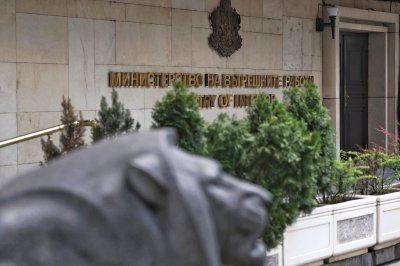Today, the European Central Bank (ECB) and the European Commission (EC) published their reports assessing Bulgaria’s compliance with the convergence criteria. These are the so-called Maastricht criteria, which every EU Member State is required to meet before formally requesting an assessment of its economic and financial condition. These criteria—public debt, budget deficit, price stability, and long-term interest rates—must be fulfilled for a country to initiate the process of joining the euro area. This was announced by Prime Minister Rosen Zhelyazkov during a briefing at the Council of Ministers on June 4.

The Prime Minister emphasised that this obligation applies to all EU Member States, with the exception of Denmark. The countries that joined the EU in 2004, 2007, and 2013 were Member States with a derogation, meaning they also had derogations when they joined, indicating they did not initially meet the convergence criteria, Zhelyazkov noted. He added:
“A significant number of these countries are now part of the euro area—Latvia, Lithuania, Estonia, Slovenia, and Croatia. We were ahead of Croatia in this process, entered the Banking Union together, and joined the so-called ‘waiting room’ together, where, following our entry into ERM II, a two-year period is required. Croatia became a member of the euro area in 2022 and has already reaped the benefits. Today, the EC and ECB clearly stated that Bulgaria meets the criteria. This is a source of pride for Bulgarian society.”

The Prime Minister further explained that the reports address two critical aspects: confirming Bulgaria’s compliance with the criteria and sending a clear signal to European institutions that the country is ready to join the euro area as of 1 January 2026.
“This will be formalised through decisions expected on 8 July, to be adopted by the European Parliament and the Council of the European Union. These decisions will officially launch the process for Bulgaria’s adoption of the euro from 1 January 2026. From that date, specific steps will begin in accordance with the law on the introduction of the euro in the Republic of Bulgaria, adopted by the National Assembly last year,” Zhelyazkov added.
Finance Minister Temenuzhka Petkova reminded that the final decision of the European Council confirming Bulgaria’s accession to the euro area will take place on 8 July. One month after this decision, the dual price display period will begin and will continue until 31 December 2026.
“It is crucial to prevent any attempt at unjustified price increases even before dual pricing begins. This is extremely important to ensure that Bulgarian citizens are calm and that the transition to the euro is smooth and without disruption. I am confident that the euro will be introduced successfully in Bulgaria, bringing only benefits. Bulgaria is entering an entirely new orbit—this means economic growth, financial and economic stability. From now on, only good days lie ahead.”

BNB Governor Dimitar Radev confirmed that the central bank is working at full capacity in preparation for Bulgaria’s final accession to the euro area. He outlined three key areas of focus:
“First, the political and administrative process. Second, adapting our already-built technical and logistical infrastructure to ‘euro area mode’—information systems, payment systems. We have a detailed plan through the end of the year, which includes numerous actions, and we are strictly following the schedule. This includes the minting of Bulgarian euro coins and the supply of the required volume of euro banknotes.”
The bank remains committed to the euro awareness campaign - according to Dimitar Radev, the results are already in:
“Initially, our efforts were focused on businesses, trade unions, academia, and the non-governmental sector. We recently signed memoranda of cooperation with many institutions, which are also ready to participate in the public information campaign. The business community has already started to contribute in a positive way,” he concluded.

photos by Dessislava Kulelieva, BNT







 Чуй новините
Чуй новините Подкаст
Подкаст



























